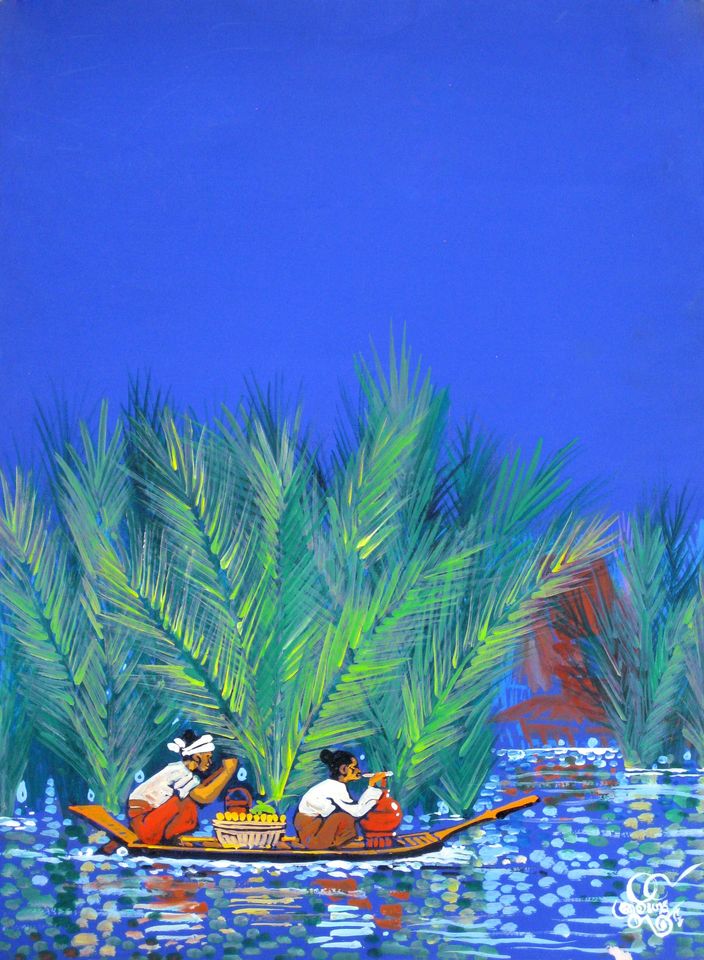A conference on Myanmar, taking placing at the University of Zurich last June, was performed under strict rules of conduct, reflecting the country’s crisis also in the area of science. Diverting positions within the international community how to meet Myanmar’s situation became visible.

Hot summer days in Zurich, cold comfortable rooms inside the university’s old building, ready for a hybrid conference, online and in-person, organized by the University of Zurich, the Myanmar Institut e.V., and the Northern Illinois University/Center for Burma Studies. The „15th International Burma Studies Conference. Envisioning Myanmar: Crisis, Change, Continuity“, 9-11 June 2023, was funded by several institutions, among them the Switzerland’s Federal Department of Foreign Affairs.
Scholars and professionals interested in Myanmar had come from around the world to talk and understand what is going on in the Southeast Asian country dealing with the consequences of Covid-19 and the coup d’état of 2021.
Under Chatham House Rule, the conference program wasn’t allowed to be published, pseudonymes had to be respected, the taking of photos basicly was a taboo.
Invisibly, Myanmar’s military council was overshadowing the conference by successfully limiting freedoms and liberties of an academic community who usually takes freedom of speech for granted.
Nevertheless, many participants from Myanmar had successfully applied for the visa enabling them to participate in person. This was a strong plus for the conference due to the deep insight of the country’s situation those participants are in possession of.
The Conference
A set of crammed sessions had been scheduled over the course of two days, filled with discussions and presentations by known and unknown speakers like young students or researchers, established academics, independent analysts.
Those who had come to listen wanted to know about Myanmar and how it has changed after the coup d’état.
Among them, for example were exil-Burmese from the United States, and members of the 1988’s movement, staffers of international non-governmental organisations from Sweden or Switzerland, highly specialized librarians from the Netherlands, students from Canada, and last, but not least young political activists from Germany who had discovered Myanmar when the consequences of the coup d’état became visible.
Research
It was interesting to listen to those who do Myanmar research under safe conditions, and it was even more interesting to listen to those who were talking about their academic work inside Myanmar. For the moment, this means daily restrictions and fears.
But also some research strategies were mentioned while according to a professor from Myanmar ‘the adaptation process to the new situation is still running’.
Different Approaches to Myanmar Studies
What became clear is the fact that there will be different approaches to any future research on Myanmar: first, a government-led, donor-driven one, performed under safe conditions and in distance to what is happening on the ground.
Second, a research inside Myanmar marked by all the limitations and dangers military rule has at hand for science.
Finally, a third way will be that academics from abroad will predominantly direct students inside the country to do some research by collecting data by observing food prices, for example.
That latter kind of research, as it was explained in the aula of Zurich’s old university building, would be done ‘due to the need of exact data for policy recommendations‘.
This statement was evoking fierce protest of a Burmese student attending the presentation.
Raising the voice, the student‘s highly emotional words about the endangering of Burmese students inside the county for the sake of third country’s research projects did not seem to fit into the atmosphere of a well-tempered academic meeting.
As a consequence, those words were left basicly unanswered by a surprised lecturer and an overtaxed moderator.
May be this was a writing on the wall, that those who will do research inside Myanmar, where currently only local level-resarch is allowed, will meet heavy difficulties on several levels.
A European lecturer of Southeast Asian affairs, employed at an Asian university, commented in a neutral way that he and his colleagues would do ‚what we did 20 years ago: researching how the people of Myanmar protest against the military.‘
Impressions

Fund Raising
A friendly woman from Myanmar held a table of beautiful hand-crafted things for sale in the university’s halo.
One could pay in Suisse, American or European currency. The prices were not high, donations were welcome.
Talking to her one could learn that she was a university professor.
Preoccupied with the life-threatening situation in Kayah State, she hoped to collect some money for the people and what they need. This money, she said, would go to an elementary school. Close to that school, bombs recently had went down, fortunately not harming anyone.
Now, the school would need a bunker made from special materials for giving safety to the children.
At the end of the conference all the colorful shirts and bags were almost sold out. One of the participants had bought a green hand-woven bag, carrying it like a trophy on the shoulder.
Being guarded
One of the conference’s participants, being a known member of Myanmar’s international community, experienced the consequences of military rule last year in person.
Prominent and fluent in Burmese, this person kept a low profile in Zurich, while giving once in a while sharp comments during discussions.
On the personal level, a heavily guarded appearance contrasting the person’s habitus before and after last year’s Yangon experience was to be observed.
Counseling
During a panel’s Q&A part, the following scene emerged:
A prim and proper exile-professor from the United States asked a well-known 1988er from Yangon, himself slightly bowed by the years, about possible solutions of the Myanmar crisis. ‚Ah, you need some help‘ , was the answer, given in an amused manner. That irony seemed to be the assertion of the truth.
There was laughter in the room. Then a firm and friendly answer followed: „What Myanmar needs, is cohesion, may be after the Australian model.“
